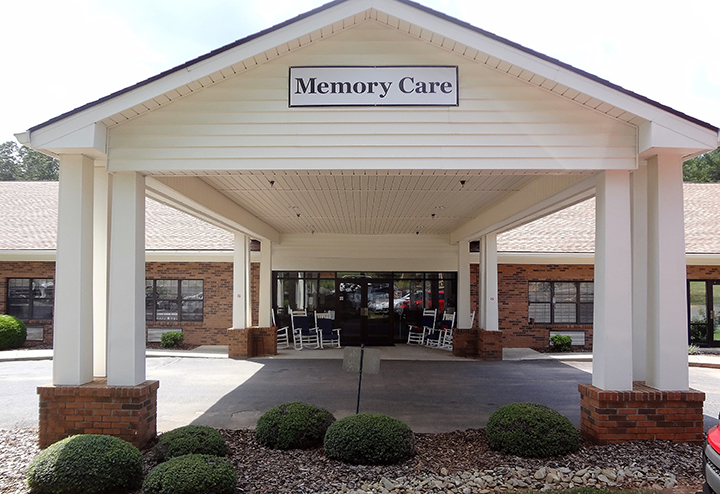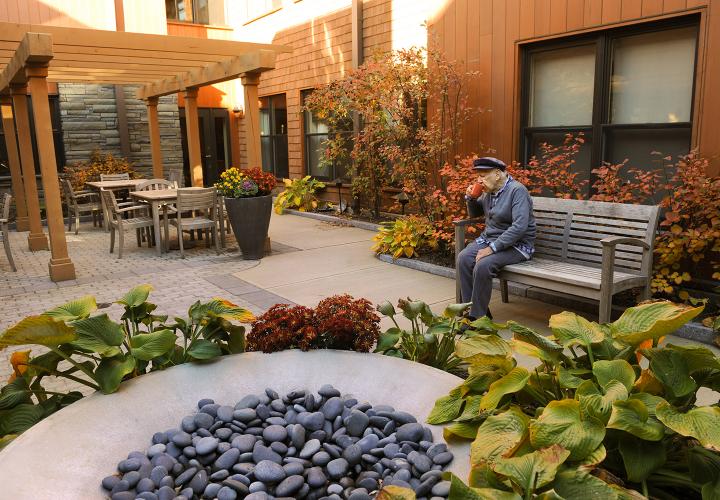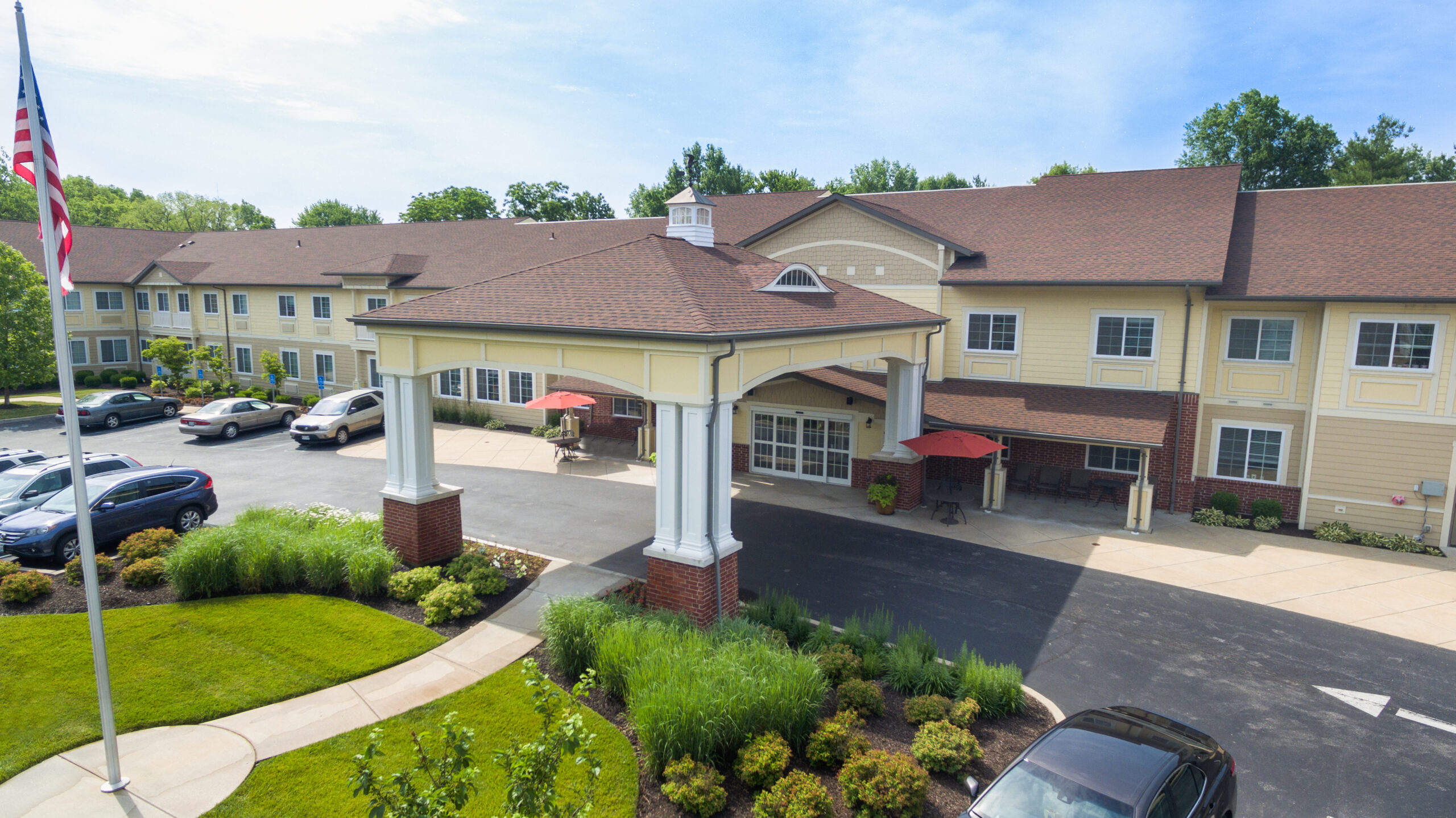Outstanding Facilities Offering Comprehensive Alzheimers Care Charlotte
Outstanding Facilities Offering Comprehensive Alzheimers Care Charlotte
Blog Article
Creating a Safe and Encouraging Environment for Alzheimer's Care
The production of a encouraging and secure atmosphere for people with Alzheimer's is vital in boosting their quality of life. This entails not just physical adaptations within the home, such as decreasing hazards and integrating familiar elements, yet additionally the execution of organized regimens and significant tasks that cater to their cognitive demands. Additionally, recognizing the mental and psychological dimensions of care can significantly impact their complacency and connection. Checking out these diverse strategies can disclose important understandings into effective caregiving approaches that may transform the everyday experiences of both people and caregivers.
Understanding Alzheimer's Needs
Regularly, people with Alzheimer's illness exhibit a variety of demands that call for tailored approaches to care. As the condition progresses, cognitive decline shows up in numerous ways, influencing memory, thinking, and also the capacity to perform day-to-day activities. Caretakers should acknowledge these developing demands to supply proper assistance and guarantee a better of life for those influenced.
One crucial aspect of recognizing Alzheimer's requirements is identifying the value of routine and experience. Individuals often locate comfort in well-known patterns, which can minimize anxiety and complication. Caregivers must make every effort to develop organized everyday routines that integrate meaningful activities aligned with the person's rate of interests and abilities.
Furthermore, efficient communication is extremely important. Individuals with Alzheimer's may struggle to reveal themselves or comprehend intricate language. Caretakers must employ basic, clear language, usage non-verbal signs, and method energetic paying attention to cultivate understanding and connection.
Last but not least, psychological and social needs can not be forgotten. Supplying chances for social communication and keeping relationships can dramatically boost psychological wellness. Caretakers must encourage interaction in community activities or family members events, promoting a sense of belonging and purpose. Comprehending these diverse needs is vital for developing a supportive care atmosphere.
Designing a Safe Home
Creating a risk-free home for individuals with Alzheimer's condition is crucial to promoting and minimizing threats self-reliance. The layout of the living area need to prioritize safety and security while enabling individual comfort. Initially, eliminate potential hazards such as loosened carpets, sharp things, and mess, which can result in falls or accidents. Ensure that pathways are clear and well-lit, as correct lighting minimizes disorientation and enhances mobility.
Incorporating flexible features is likewise crucial. Set up grab bars in bathrooms and near stairways, and consider using non-slip floor coverings in wet areas. In addition, utilizing different shades for walls and floorings can help in identifying spaces, assisting to mitigate confusion.
Experience is very important for individuals with Alzheimer's. Individualizing the environment with familiar items and pictures can reinforce a sense of belonging and protection - Alzheimers Care Charlotte. It is also helpful to have actually a designated area for everyday tasks, such as analysis or crafting, which can provide structure to their day
Finally, carrying out a safe and secure outdoor area permits secure expedition while attaching with nature. By thoughtfully developing the home atmosphere, caregivers can dramatically boost the top quality of life for individuals living with Alzheimer's disease.
Enhancing Communication Skills

Non-verbal interaction, including face expressions, motions, and touch, plays a critical duty in communicating empathy and understanding. Keeping eye get in touch with and a calm demeanor can boost the comfort degree of the individual, promoting a feeling of safety.
In addition, it is very important to practice active listening. This involves being totally present, revealing persistence, and allowing the person to express themselves without disruption. Repetition might be necessary; caretakers should be prepared to take another look at questions or subjects, as individuals with Alzheimer's might struggle with memory recall.
Furthermore, making use of visual help or cues, such as photos or familiar items, can promote recognition and involvement. Ultimately, improving interaction skills is regarding constructing count on and developing an environment where individuals really feel listened to, valued, and understood, consequently improving their quality of life.
Motivating Social Communication
Fostering significant social communications can greatly improve the wellness of people with Alzheimer's condition. Engaging with others not only assists fight sensations of isolation but likewise boosts cognitive feature and emotional health. Structured social activities, such as group video games, crafts and arts, or music therapy, produce chances for citizens to attach with peers and caretakers, which can bring about boosted mood and minimized anxiousness.
Developing a welcoming environment that encourages socialization is important. This can be accomplished by setting up common areas that assist in communication, such as relaxing seating locations or task spaces. Furthermore, integrating familiar and culturally appropriate activities can spark memories and urge engagement, enabling individuals with Alzheimer's to feel more linked to their past experiences.
Additionally, caregivers ought useful site to be trained to recognize and advertise social involvement among locals. Easy gestures, such as launching discussion or assisting in small group conversations, can assist individuals feel valued and consisted of. Consistently arranged social events should be regular yet adaptable, fitting varying degrees of capability and interest. By focusing on social interaction, we can significantly improve the lives of those dealing with Alzheimer's, fostering a feeling of neighborhood and belonging.
Supporting Caretaker Well-being

To support caretakers, companies should provide routine training and instructional sources to boost their understanding of Alzheimer's disease and caregiving techniques. Supplying accessibility to reprieve treatment solutions permits caretakers to take necessary breaks, decreasing tension and tiredness - Alzheimers Care Charlotte. Furthermore, cultivating an area via support system can assist in psychological sharing and the exchange of functional suggestions amongst caretakers, developing a network of shared assistance
Mental health and wellness resources, such as counseling services, can also be vital in addressing the emotional toll caregiving can take. By focusing on caretaker health, we produce a more sustainable caregiving environment that not just profits the caregivers themselves however also enhances the total top quality of care received by people with Alzheimer's. Inevitably, sustaining caregivers is an important component in cultivating a efficient and compassionate treatment setting.
Conclusion
To conclude, the production of a risk-free and supportive environment for people with Alzheimer's is necessary to improving their lifestyle. By focusing on security through thoughtful layout, promoting emotional health with familiar components, and promoting engagement with structured routines, caretakers can considerably impact the general experience of those affected by this problem. Supporting caretaker well-being is critical, as it eventually adds to a more efficient and compassionate care atmosphere.
Rep may be essential; caregivers ought to be prepared to take another look at topics or concerns, as individuals with Alzheimer's might struggle with memory recall.

Report this page